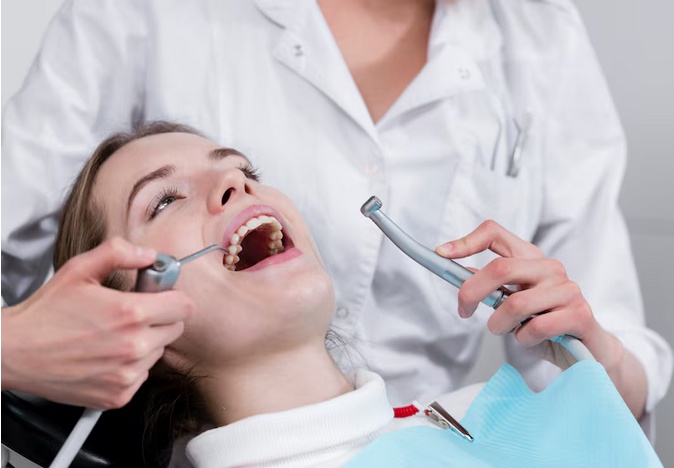Corrective jaw surgery, also known as orthognathic surgery, is a specialized procedure aimed at correcting various abnormalities of the jaw and facial structure. Beyond its cosmetic benefits, this surgery plays a critical role in enhancing oral health, improving function, and alleviating associated health issues. Understanding the importance of corrective jaw surgery is essential for individuals with jaw misalignments or deformities seeking comprehensive oral care.
Understanding Corrective Jaw Surgery
Corrective jaw surgery is a surgical procedure performed by oral and maxillofacial surgeons to realign the jaws and correct irregularities of the facial skeleton. It is often recommended for individuals with conditions such as:
- Malocclusion (misalignment of teeth and jaws)
- Facial trauma resulting in jaw deformities
- Congenital defects affecting jaw development
- Temporomandibular joint (TMJ) disorders
- Obstructive sleep apnea caused by jaw abnormalities
- Difficulty chewing, biting, or swallowing due to jaw misalignment
The primary goal of corrective jaw surgery is to improve facial harmony, restore proper bite function, and alleviate symptoms associated with jaw irregularities.
Importance of Corrective Jaw Surgery for Oral Health
-
Improved Bite Function: One of the key benefits of corrective jaw surgery is the restoration of proper bite alignment. Misaligned jaws can lead to difficulties in biting, chewing, and speaking. By correcting the position of the jaws, this surgery improves the overall function of the teeth and jaw joints, reducing strain and discomfort during everyday activities.
-
Prevention of Dental Problems: Malocclusion (bad bite) caused by jaw misalignment can result in uneven tooth wear, excessive pressure on certain teeth, and increased risk of dental issues such as cavities and gum disease. Corrective jaw surgery helps prevent these problems by aligning the teeth properly within the jaws.
-
TMJ Disorder Treatment: Temporomandibular joint disorders, characterized by pain, clicking, or locking of the jaw joint, are often associated with jaw misalignments. Corrective jaw surgery can alleviate TMJ symptoms by repositioning the jaw joints and improving their function.
-
Facial Symmetry and Aesthetics: Jaw deformities not only affect oral function but also impact facial aesthetics. Corrective jaw surgery can enhance facial harmony and symmetry, boosting confidence and overall quality of life for individuals with jaw abnormalities.
-
Airway Improvement for Sleep Apnea: Certain types of jaw misalignments can contribute to obstructive sleep apnea, a serious sleep disorder characterized by repeated pauses in breathing during sleep. By repositioning the jaws and expanding the airway, corrective jaw surgery can effectively treat sleep apnea and improve breathing during sleep.
The Procedure and Recovery
Corrective jaw surgery is a complex procedure that requires careful planning and coordination between the oral surgeon, orthodontist, and other dental specialists. Before surgery, patients undergo comprehensive evaluations, including dental impressions, X-rays, and 3D imaging to assess jaw structure and plan the surgical approach.
During the surgery, the oral surgeon makes precise cuts in the jawbones to reposition them according to the treatment plan. Bone grafts or surgical plates and screws may be used to stabilize the newly aligned jaws. Recovery time varies but generally involves a period of swelling, discomfort, and dietary restrictions as the jaws heal.
Post-surgery, patients undergo orthodontic treatment to fine-tune the alignment of the teeth within the new jaw position. Regular follow-up appointments with the oral surgeon and orthodontist are essential to monitor healing progress and ensure optimal results.
Expected Results and Long-Term Benefits
Corrective jaw surgery can yield life-changing results, including:
- Enhanced facial aesthetics and symmetry
- Improved bite function and chewing ability
- Reduction in jaw pain and TMJ symptoms
- Prevention of dental problems associated with misaligned jaws
- Resolution of obstructive sleep apnea and breathing difficulties
While the recovery period may vary for each individual, the long-term benefits of corrective jaw surgery far outweigh the temporary discomfort. Patients can expect improved oral health, enhanced facial harmony, and restored confidence in their appearance.
Conclusion
In conclusion, corrective jaw surgery is a transformative procedure that goes beyond cosmetic enhancements to significantly improve oral health and overall well-being. By addressing jaw misalignments and deformities, this surgery restores proper bite function, prevents dental problems, and alleviates symptoms associated with TMJ disorders and sleep apnea. Moreover, corrective jaw surgery enhances facial aesthetics and boosts self-confidence, allowing individuals to enjoy a better quality of life.


No comments yet